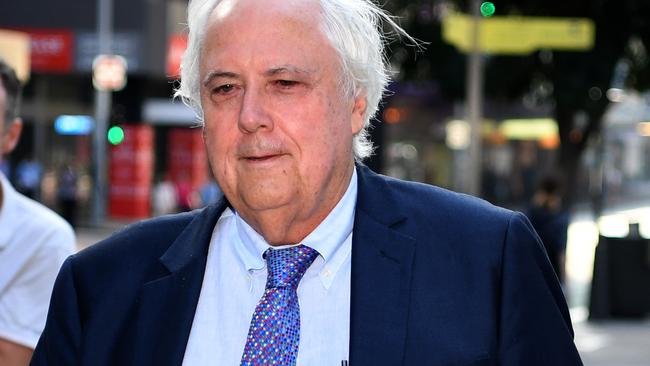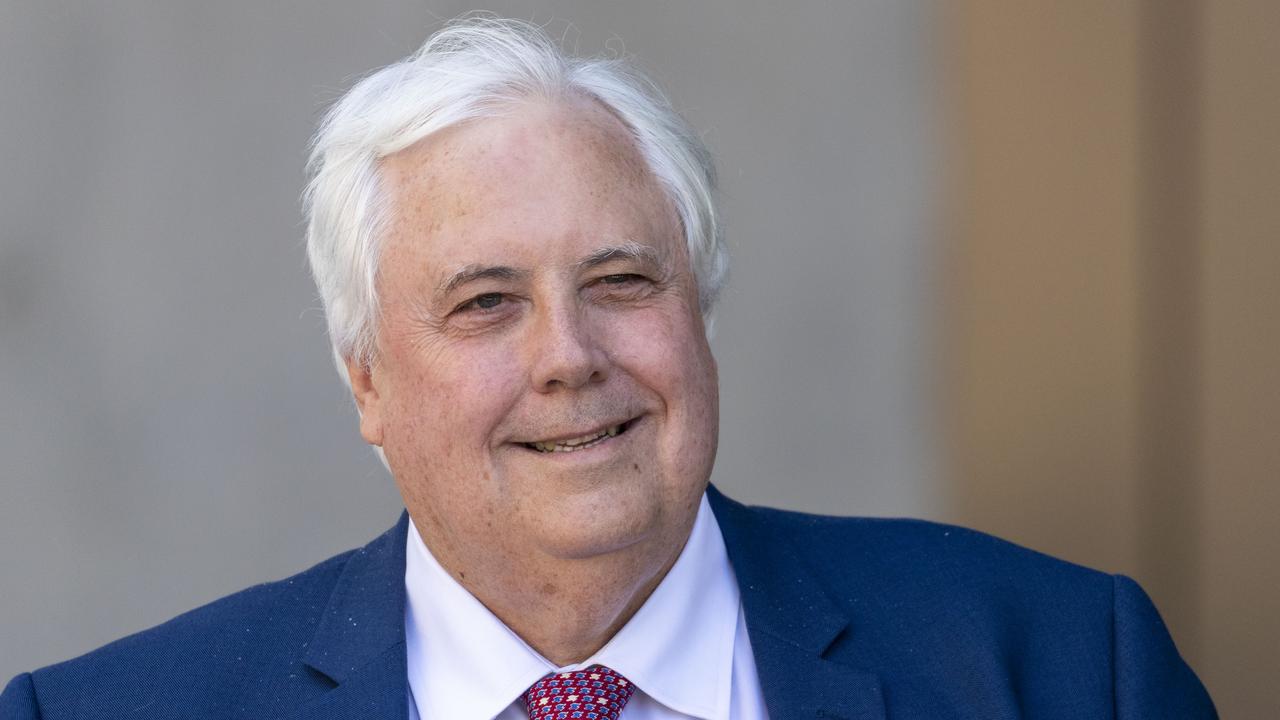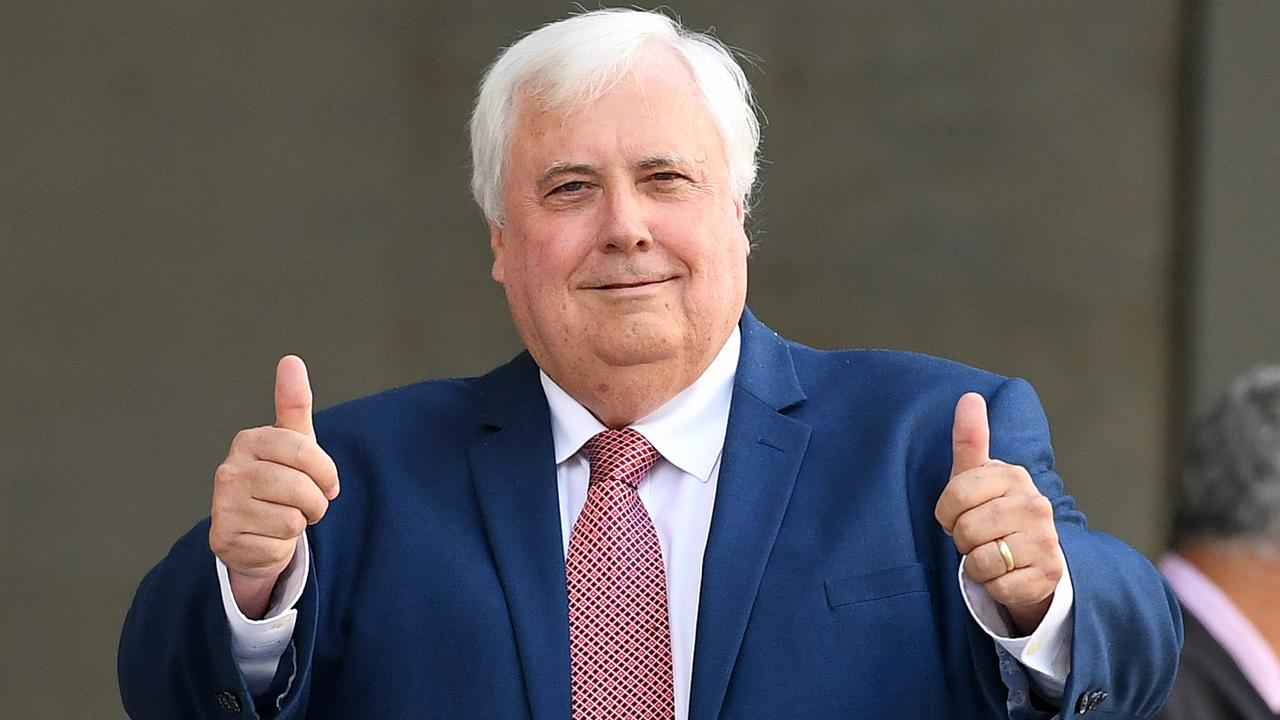Clive Palmer warned about giving ‘false hope’ to sacked workers
Clive Palmer has been warned not to give ‘false hope’ to workers by pretending to consider reopening his refinery.

The union representing workers sacked by Clive Palmer’s Queensland Nickel has warned the resources magnate not to offer “false hope” to north Queenslanders by pretending to consider reopening the refinery.
Australian Workers Union northern district secretary Bede Harding and Townsville Labor MP Scott Stewart held a meeting with Mr Palmer at his dormant north Queensland plant, after the former federal MP flew to Townsville yesterday.
Mr Harding and Mr Stewart said they were sceptical of Mr Palmer’s repeated suggestions he was considering reopening the refinery, which has been closed since early last year when the operating company collapsed and 800 workers lost their jobs.
“I would caution Clive about making public statements about his intentions because it gives people false hope,” Mr Harding said.
Mr Stewart said, at his insistence, Mr Palmer agreed to meet sacked workers and their families on a later visit to Townsville, but said he was “not holding my breath” that Mr Palmer would keep his promise. “He needs to look in the whites of the eyes of the families, the kids, of the workers who lost their jobs and explain what he’s done and why he’s done it,” Mr Stewart said. Mr Palmer did not return calls from The Australian yesterday.
Ever since the refinery shut, Mr Palmer has promised he would reopen it, without results. At one stage, he asked for expressions of interest from former staff who would be interested in working at the Yabulu refinery if it ever reopened.
In court documents, a valuer employed by Mr Palmer said recently it would cost at least $50 million to get the refinery up and running again.
As Mr Palmer visited the defunct business, lawyers for his flagship company Mineralogy were engaged in a separate battle in the Queensland Supreme Court in Brisbane over an alleged $US16.7m debt owed to Singapore’s BGP Geoexplorer.
Mineralogy claims it does not need to pay the bill, because BGP Geoexplorer breached small elements of its contract with Mr Palmer’s Palmer Petroleum in 2011, when it was hired to conduct oil and gas exploration surveys in the Gulf of Papua, south of Port Moresby.
The court heard Mineralogy guaranteed the deal, and $US18m has been paid — but $US16.7m remains outstanding. The case is potentially significant for Mr Palmer’s corporate empire because Mineralogy holds the mining rights for its massive iron ore West Australia project with estranged business partner Citic Pacific.
If the judge rules against Mineralogy, and Mineralogy cannot pay the debt, it could lose control of the WA mining tenements.
Supreme Court judge David Jackson QC was scathing yesterday of Mineralogy barrister Pat Zappia QC’s attempts to tender a new report from an expert witness at the last minute.
“It seems to me that it’s a fundamental default in the procedural law of this court,” Justice Jackson told Mr Zappia. “At this point in the case … that’s the kind of statement that I think brings courts into disrepute.”
The hearing continues.



